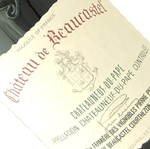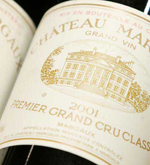Wine news 10 September 2012
Dfr offer 7% growth tax free investment ,starting from £20.00 !!
For the first time the Greek grape variety Assyrtiko was panted on Australian soil.
Monday 10 September 2012 by Christina Pickard Comments

Peter Barry, of Clare Valley winery Jim Barry Wines, has been planting vines on half a hectare of land at the Winery's Lodge hill property. The first time Peter came across Assyrtiko, when he was visiting the native grape island of Santorini, where it ‘immediately stood out as a variety suited to the modern Australian palate,’ he stated'. The fresh, crisp acidic qualities of the wine are perfect accompaniments to contemporary Australian food.’it is known for its resistance to drought and disease, Peter believes Assyrtiko is a great choice for the future of South Australian winemaking. Clare is a cool district with good rainfall but we must face up to climate change and water scarcity and adapt our management appropriately.
Varieties which can grow on minimal irrigation and still produce contemporary wine styles is what we all look for.’When Barry sourced the cuttings from Argyros Winery in Santorini he found the vines range from 50 to 300 years old.'The laborious process of importation and quarantine has discouraged many growers in Australia from trying something new,’ said Barry. The yalumba nursery in the Barossa helped the winery, which is fully accredited for quarantine. Peter's father Jim set up his family-run winery in 1959 he pioneered grapes like Riesling,Shiraz in Australia and Cabernet Sauvignon.
The new Assyrtiko vines will be bottled in five years. Peter stated that patience is a virtue, and was much needed.
‘By the time we release this wine, I will have committed 20% of my life to this project – at least 10 years. But that’s preferable to passing from this world and wondering,
“What if?”.’









